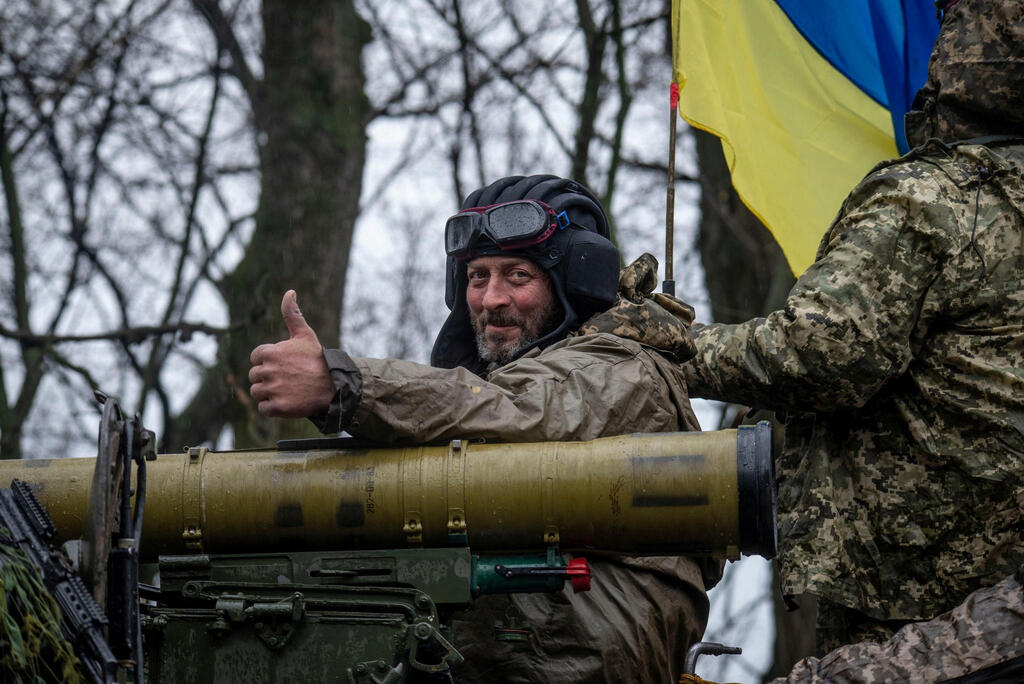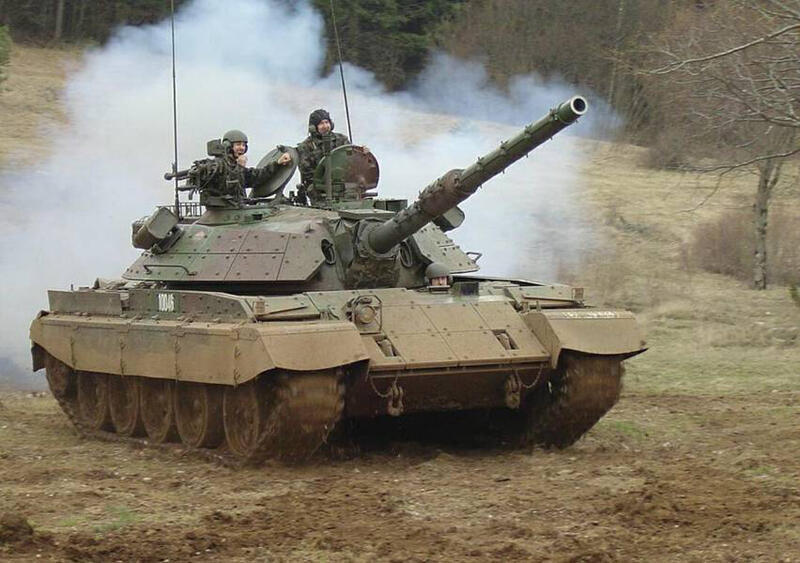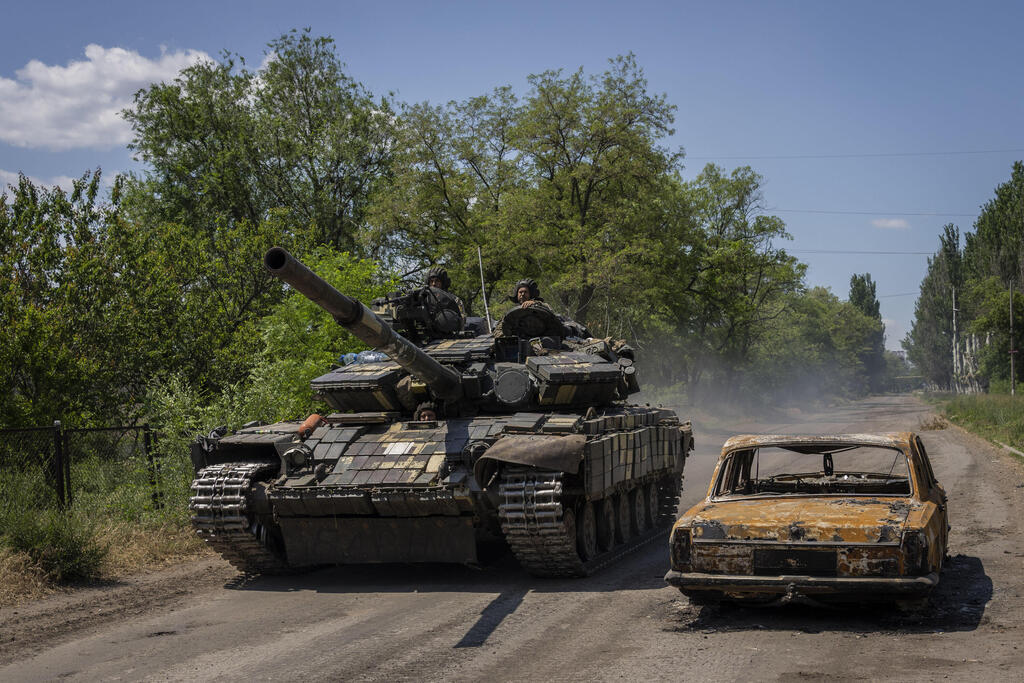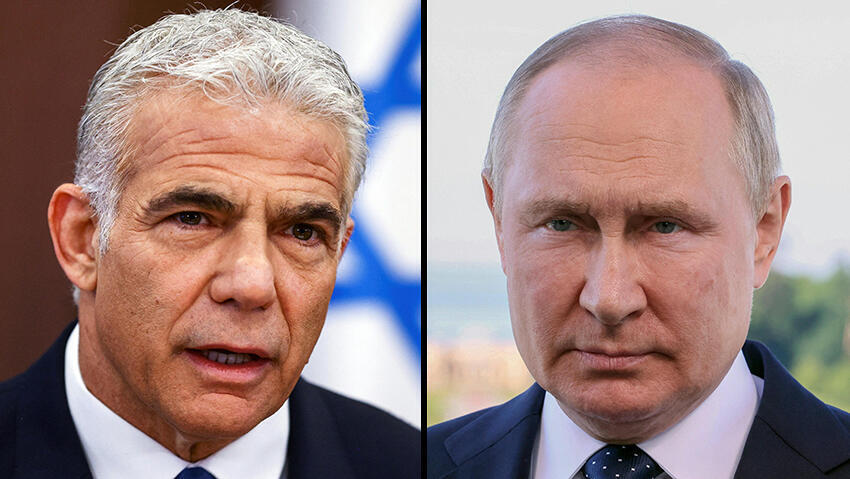Getting your Trinity Audio player ready...
Israeli technology will apparently play a part in Ukraine’s fight against the invasion from Russia for the first time, with the arrival of 28 M-55S tanks from Slovenia that include an upgrade from Elbit Systems, an Israel-based international defense company.
Slovenia announced that it will transfer the tanks to Ukraine as part of an armament swap with Germany earlier this week. The vehicles were built in the 1960s by the Soviet Union, and, according to Israeli media reports, were improved in the 1990s by Elbit.
4 View gallery


Ukrainian soldiers photographed in an undisclosed location during fierce fighting in eastern Ukraine
(Photo: Reuters)
Germany, as the biggest economy in Europe, faces heavy pressure to supply Ukraine with tanks, which Germany has done through third countries on previous occasions, such as with the Czech Republic, Greece, and Slovakia.
German Defense Minister Christine Lambrecht announced this week that Slovenia will send the tanks to Ukraine and will in return receive 40 German military trucks.
“Together, we are adding to direct arms deliveries to Ukraine to support its courageous struggle against Russian aggression,” said Lambrecht in a statement.
Even before the Russian invasion of Ukraine started in February, Israel’s Defense Ministry prevented the country’s military industries from selling heavy weaponry to Ukraine in an effort to avoid antagonizing Russia, an important factor in Israeli security in the Middle East.
Uzi Rubin, former director of the Israeli Defense Ministry’s Missile Defense Organization, added that in general, foreign countries who buy Israeli defense systems and armaments are required to get permission from the Israeli Ministry of Defense before selling or transferring the equipment purchased in Israel to third parties.
“This is a standard norm in all armament deals in the West at least,” he told The Media Line.
However, it is unclear if Slovenia received Israeli government permission before completing the transaction with Ukraine.
Dr. Eyal Pinko, a retired Israeli naval commander and an expert in intelligence, cybersecurity and national security, told The Media Line that much depends on the contract that Israel and Slovenia signed when the Elbit upgrade took place in the 1990s.
Should it emerge that Slovenia is in fact violating that agreement, said Pinko, “it is a big problem and Israel can go with them to the International Court.”
However, he does not believe that it will be the case, even if the agreement was violated.
Pinko explained that the tanks have a 30-year-old system that mainly deals with tanks’ fire control, engines, and shields.
“I don’t think Israel will do anything with that even if Slovenia was violating the agreement,” he said.
Rubin noted that another possible consequence Slovenia faces if it did indeed violate the agreement with Israel is that “they would probably have problems buying more Israeli arms.”
Even though Ukraine is receiving Israeli military technology for the first time, Pinko does not think that it will trigger any Russian reaction.
“I don’t believe that Russia will do anything concerning Israel on this matter, I think that Israel will stay clean with this issue,” he said.
The deal between Berlin, Kyiv, and Ljubljana involves Slovenia getting rid of its old tanks and receiving newer vehicles and canons from Germany, said Pinko.
He believes that if Russia does point the finger at anyone over this issue it would be Germany and Slovenia. “Mainly what will happen is that Russia will point out the issue against Germany [and] of course against Slovenia, and not against Israel,” he said.
Rubin added, however, that Ukraine is looking for much more substantial Israeli military support, something he said he is “not sure is going to happen in the near future.”
Pinko agreed with this assessment, adding that still Israel is very concerned about what Russia would do in such a situation. He said that Russia is a very important player in the military arena in the Middle East, mainly in two aspects.
The first aspect, said Pinko, is related to the Iranian nuclear program, while the second is Iranian and Hezbollah involvement in Lebanon and in Syria, where Moscow has a large presence.
“Russia is a key player in the region,” said Pinko, adding that this is why he believes that Israel will keep sending medical equipment and humanitarian aid to Ukraine rather than military equipment and weaponry.




